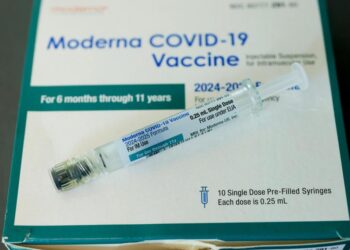Judith Graham | (TNS) KFF Health News
Medical research has shortchanged women for decades. This is particularly true of older women, leaving physicians without critically important information about how to best manage their health.
Late last year, the Biden administration promised to address this problem with a new effort called the White House Initiative on Women’s Health Research. That inspires a compelling question: What priorities should be on the initiative’s list when it comes to older women?
Stephanie Faubion, director of the Mayo Clinic’s Center for Women’s Health, launched into a critique when I asked about the current state of research on older women’s health. “It’s completely inadequate,” she told me.
One example: Many drugs widely prescribed to older adults, including statins for high cholesterol, were studied mostly in men, with results extrapolated to women.
“It’s assumed that women’s biology doesn’t matter and that women who are premenopausal and those who are postmenopausal respond similarly,” Faubion said.
“This has got to stop: The FDA has to require that clinical trial data be reported by sex and age for us to tell if drugs work the same, better, or not as well in women,” Faubion insisted.
Consider the Alzheimer’s drug Leqembi, approved by the FDA last year after the manufacturer reported a 27% slower rate of cognitive decline in people who took the medication. A supplementary appendix to a Leqembi study published in the New England Journal of Medicine revealed that sex differences were substantial — a 12% slowdown for women, compared with a 43% slowdown for men — raising questions about the drug’s effectiveness for women.
This is especially important because nearly two-thirds of older adults with Alzheimer’s disease are women. Older women are also more likely than older men to have multiple medical conditions, disabilities, difficulties with daily activities, autoimmune illness, depression and anxiety,…
Read the full article here







